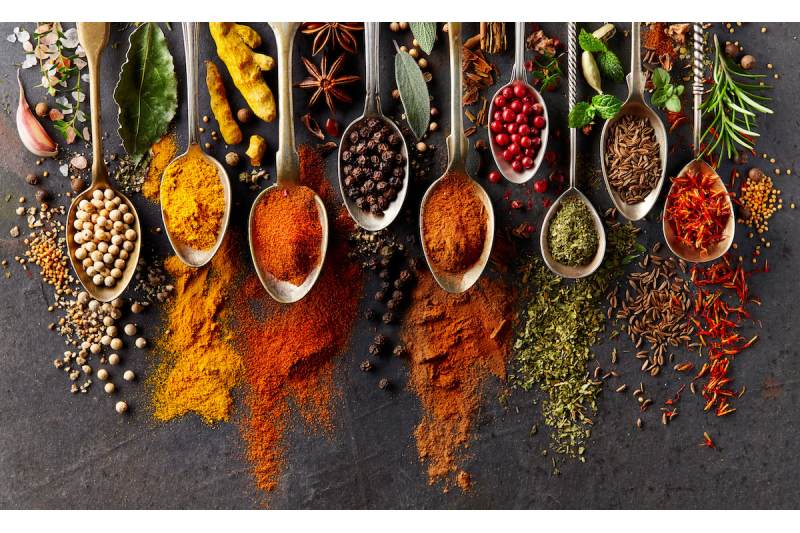Five Spices That You Should Only Use Sparingly in the Summer

While some spices assist strengthen immunity and reduce inflammation in the body, not all of them are appropriate for use in the summer. For certain people, there are specific spices that can impact their gut’s optimal functioning. However, in order to enhance digestion, food flavor, and nutrient absorption, a few summer-friendly spices need to be included in the diet. For example, ginger has a warming impact on the body and helps prevent constipation in the winter, but in order to prevent heating illnesses in the summer, ginger intake needs to be reduced. Similarly, for many people, eating chillies in the summer may not be the greatest option because they can cause acidity, heartburn, and other digestive problems. Garlic’s warming properties also require that its consumption be limited.
Avoidable Spices During Summer
In an interview, Ayurvedic physician Dr. Zeel Gandhi lists the following spices that should be used sparingly in the summer:
1. Ginger: In the Ayurvedic pharmacopeia, it is referred to as “Mahoushadh” (excellent medicine). However, if overindulged in the summer, this spice might raise body temperature. If you have issues with blood and Pitta (heat), stay away from too much fresh ginger and instead use the dry kind (sonth).
2. Asafoetida: Hing is a frequently used culinary ingredient. This seasoning/condiment does wonders to speed up metabolism. But during the warmer months, people who are Pitta (fire) dosha dominant or have blood inflammatory conditions should use this with caution.
3. Chilies (nightshades): In recent years, chiles have been incorporated into food. Use caution when using any type of chili, including long, thin, green, red, and bell pepper/capsicum variants, during the warmer months. This nightshade group contains capsaicin, which irritates and burns. Steer clear if you routinely experience heartburn, irritable bowel syndrome, or other gut-related problems.
4. Clove: Eugenol, the essential oil component of cloves, is quite hot. When using cloves in warm climates, great caution should be exercised. Those with prominent Pitta (hot) bodies or those with bleeding disorders (hemorrhoids, menorrhagia, epistaxis, etc.) should stay away from this in the summer and fall.
5. Garlic: Garlic is well known for its potent flavor and psychological effects. Garlic has such a strong heat (Rajas-guna) that people who are trying to grow spiritually avoid eating it since it can cause mental problems. For people with blood imbalances and Pitta Prakriti, garlic should be avoided in the summer months.
Summertime Spices
A significant area of study in food science is spices. They aid in balancing the doshic imbalances and enhance digestion. It has even been demonstrated that spices increase the nutrients in food’s bioavailability. Above all, they add flavor to food, which is why they are necessary.
a compilation of spices that can boost metabolism in the summer without overheating the body.
Cumin, coriander, dill, fennel, chives, bay leaf, carom, cardamom, cinnamon, and black pepper (in moderation), among other spices.